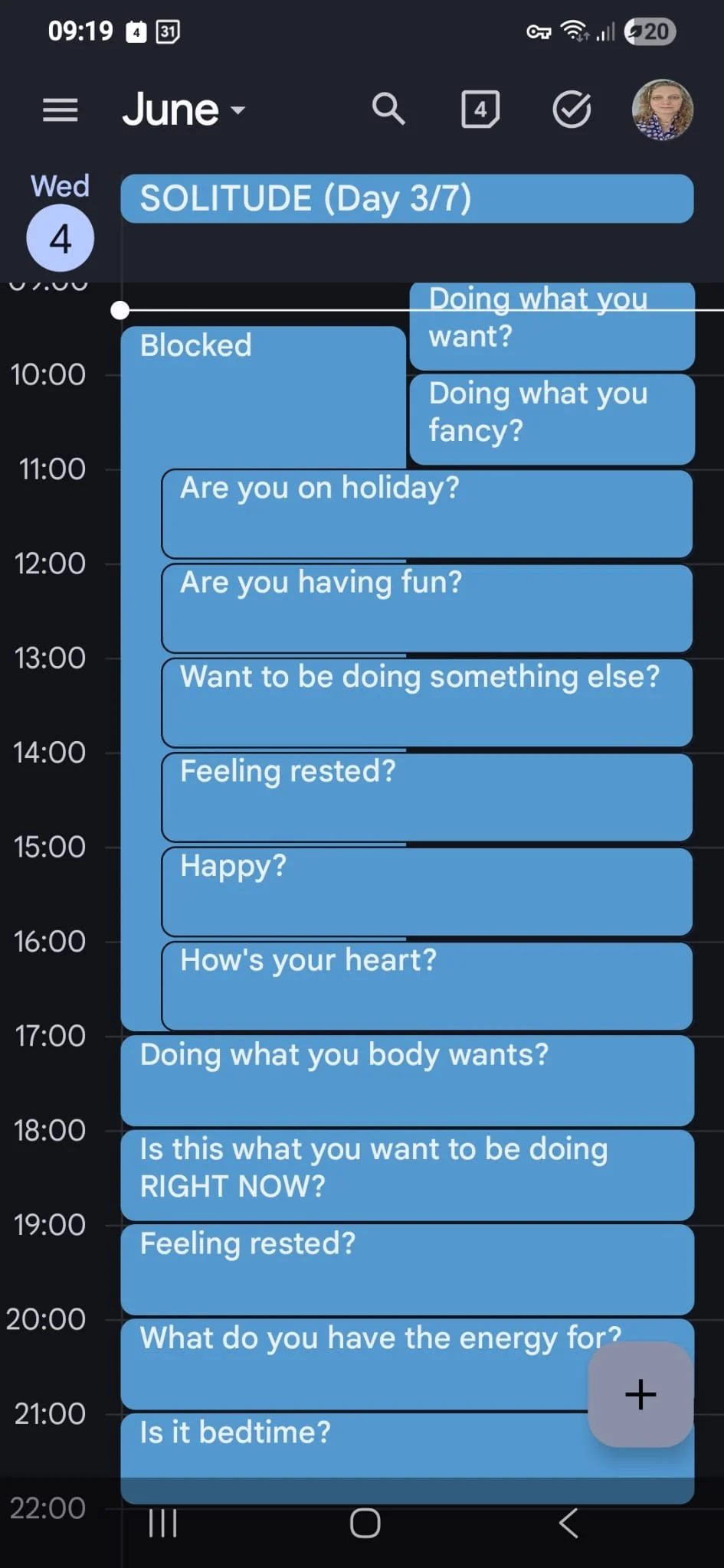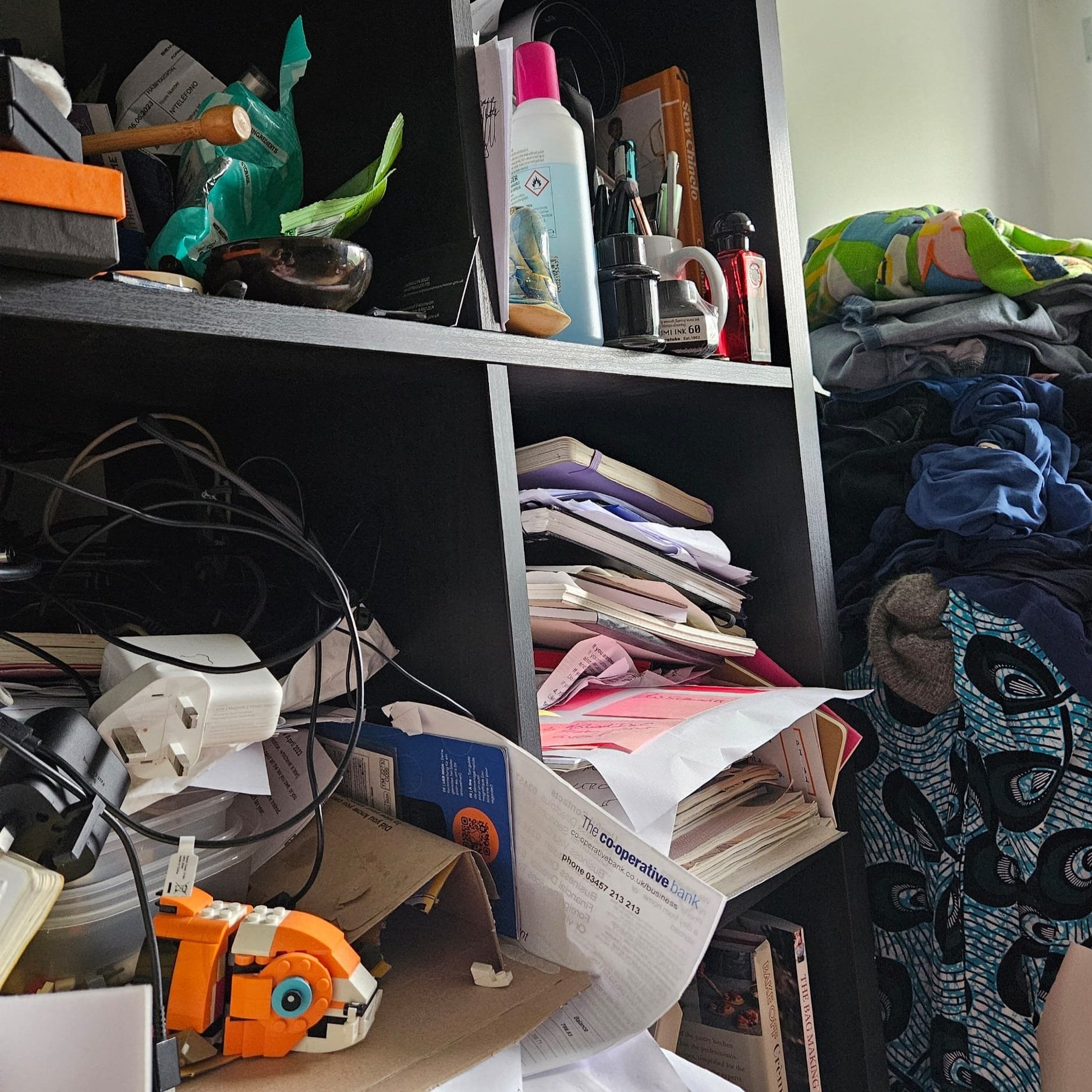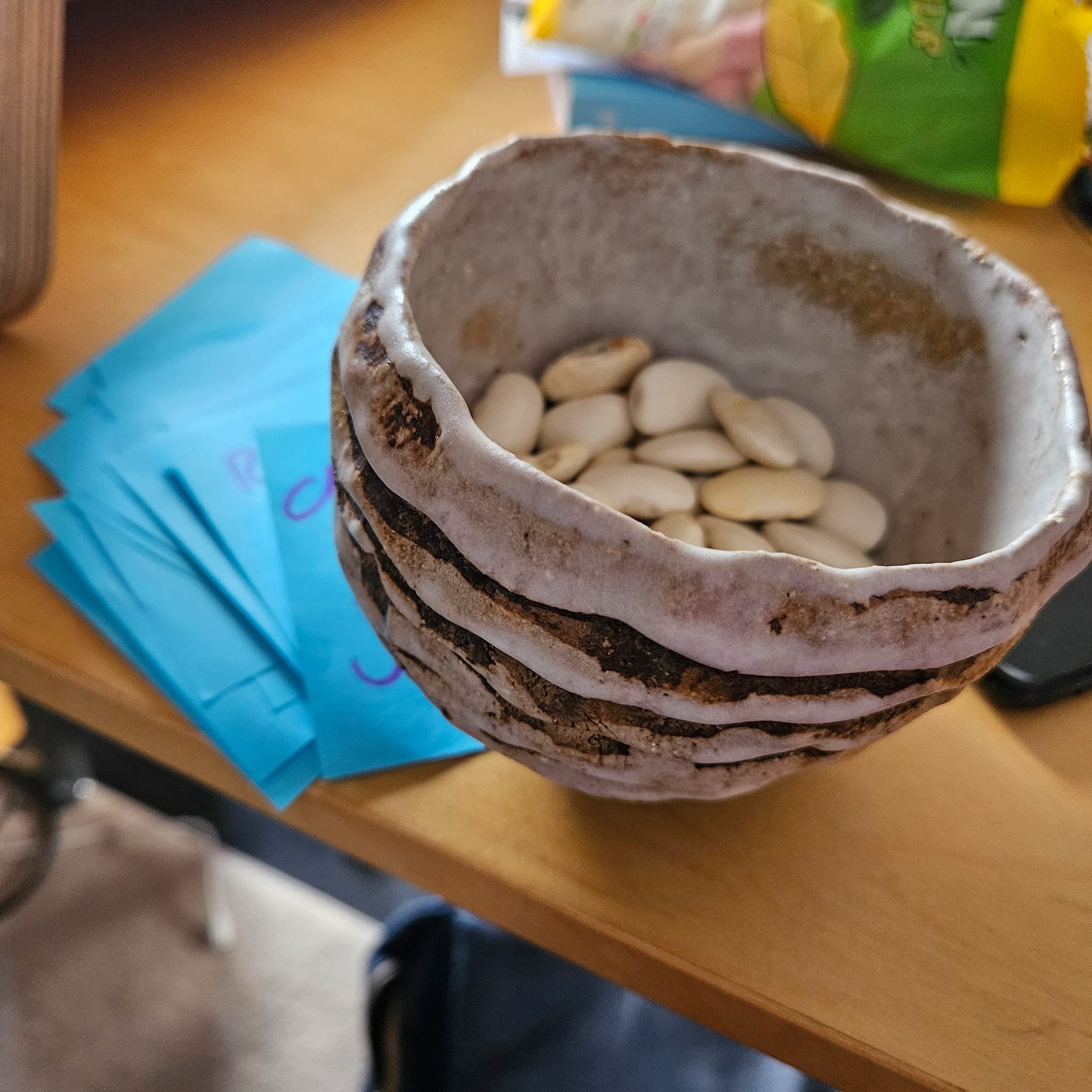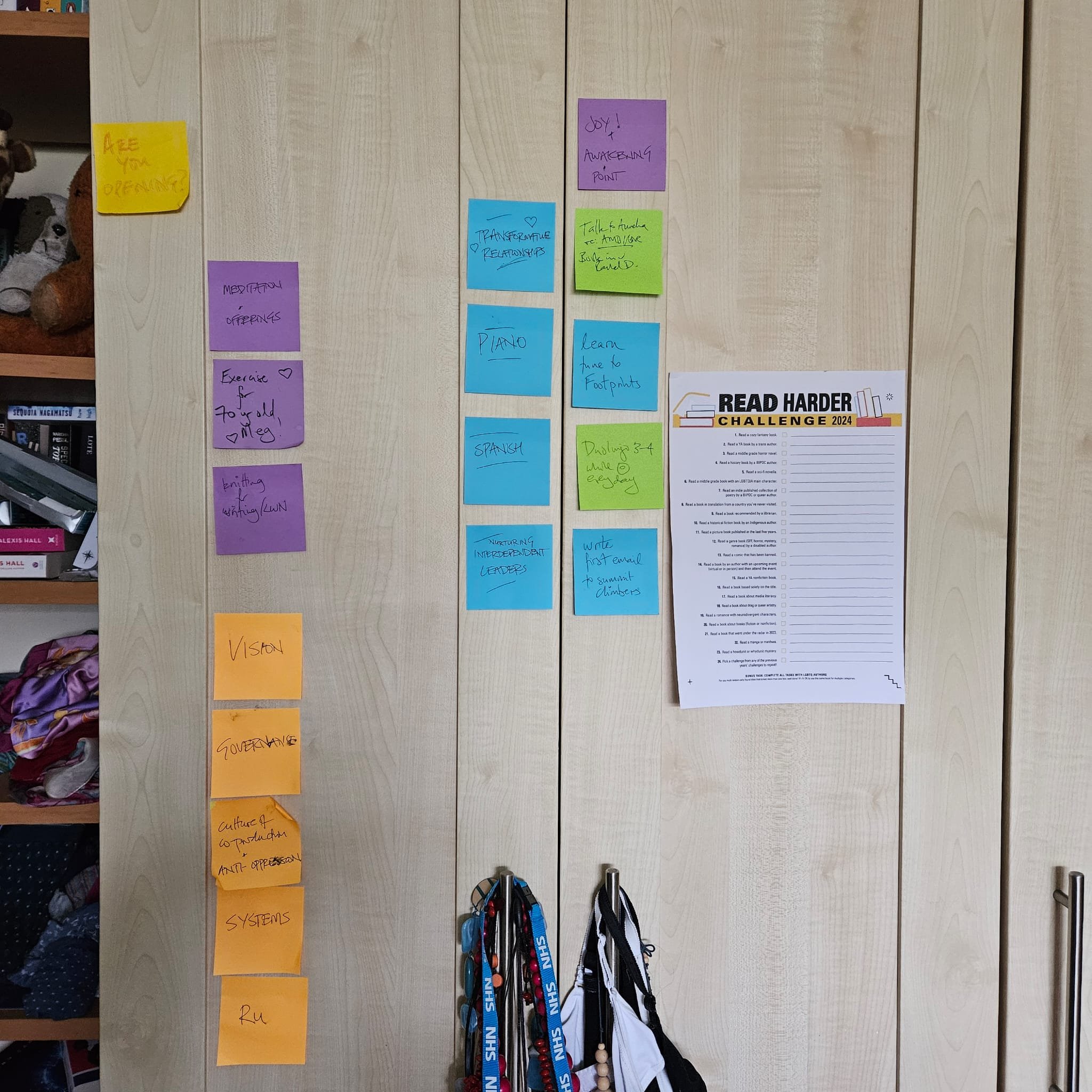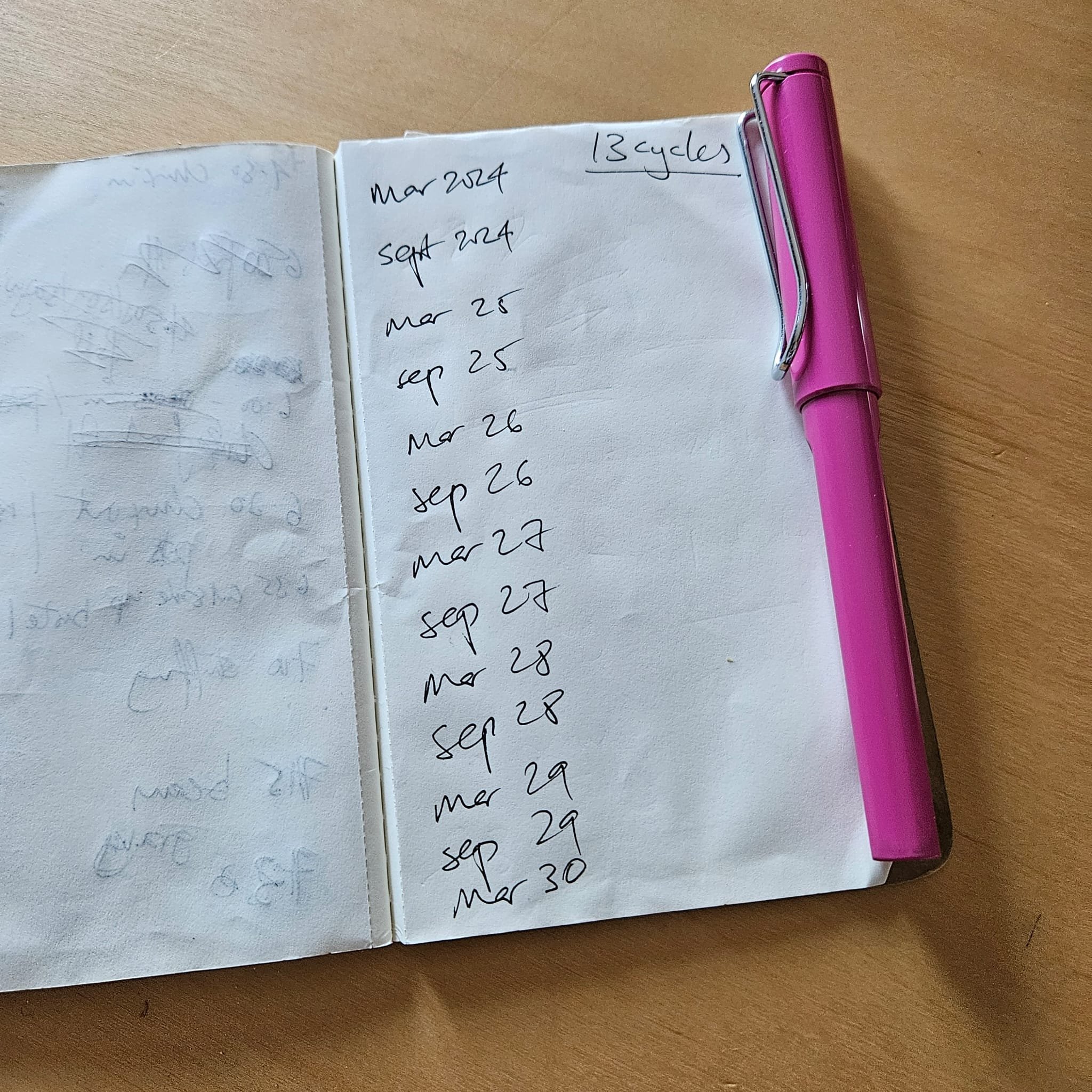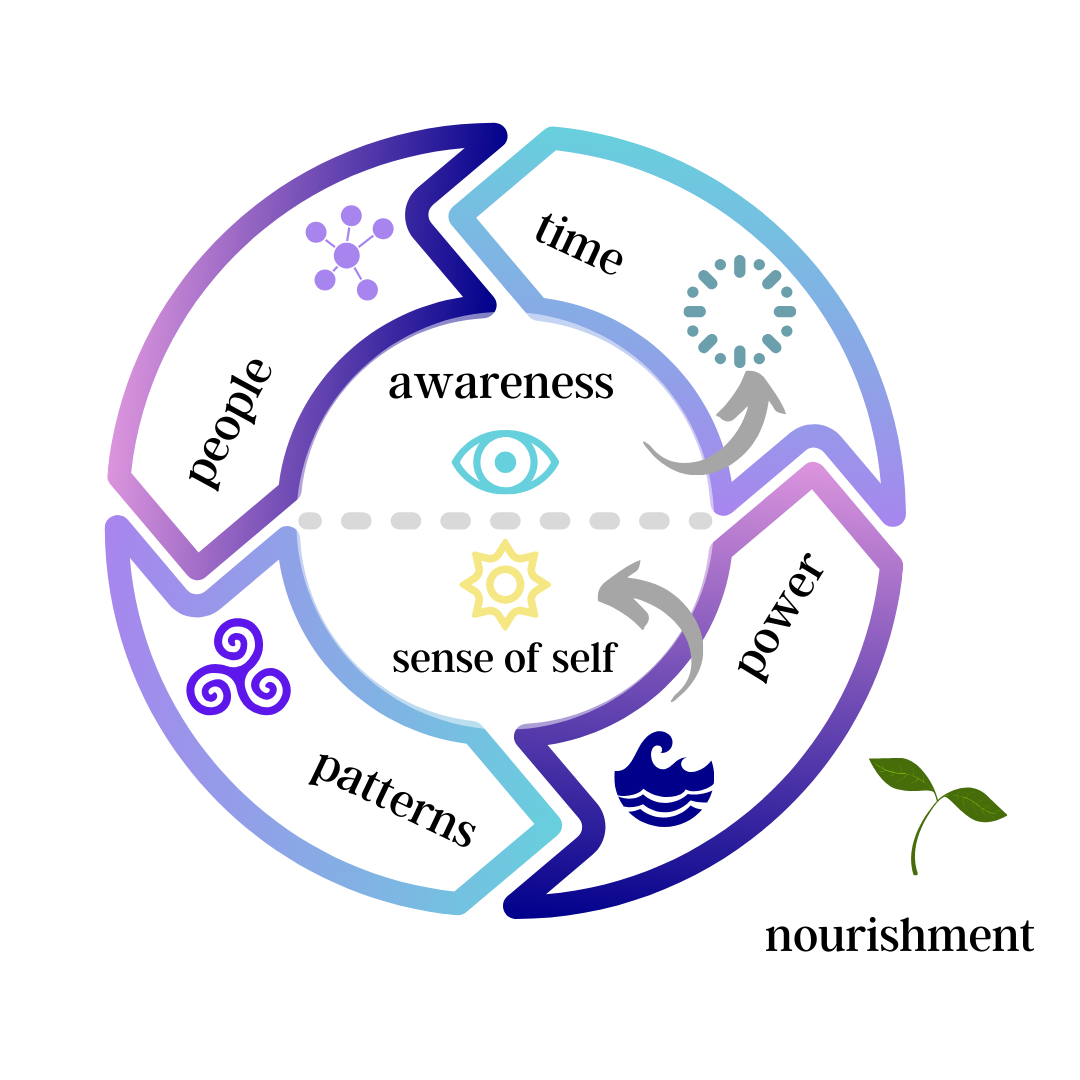I mentioned a few weeks ago that I’m working these few months on reconsolidating my externally splatted attention. I can’t hear myself think nor, more importantly, hear what the wiser parts of the world are telling me.
One of the needs I recognised in my body, my psyche, my poor neuro-beleaguered brain, was for solitude. Cal Newport in the useful-but-flawed Deep Work defines solitude as time free from the input of others which can, technically, be near other humans (like, in a cafe or something), but I was craving double-solitude - actual being-on-my-own.
No people who I know. Building a relationship just with me.
So I decided to do just that.
It was actually more difficult than I expected, but not in the ways I might have predicted.
****
New here? We’re using the World Changing Leader’s Audit to move through five aspects of being a leader for these times. At the recent New Moon on 25th June, we just moved from Relationship to Others month to Freedom from Oppression month, the fourth month in our six month sequence.
No need to ‘catch up’ as the months just keep on rolling. Find out more in the google doc link above
****
I spent the first week of my fifties totally alone, in a holiday flat by the Irish Sea. The view from the bed was glorious. There was: the house, a small road, and then… the sea.
Sitting or lying on the bed in the third-floor picture window, you could only see the sky and the sea.
I started waking up at dawn and opening the blinds at the foot of the bed so I could lean back and watch the sun rise across the sea, while quietly sinking to a second sleep. I left the blinds open at bedtime to watch the dark arrive.
The sea went in and out quite significantly at this part of the bay. There were gulls on rocks when it went out, and black birds that I thought might be cormorants, but turned out to be crows?
Before I went, I deleted WhatsApp off my phone and laptop. Zed changed all the passwords on my socials. I did set out to ‘waste’ my week, but something about wasting it on the pocket fruit machines felt different to wasting it connected to more analogue pursuits.
I brought brand new colouring books and teach-yourself-how-to-colour books and alcohol markers and acrylic markers (I had joined an adult colouring FB group and done my research). I brought knitting. I brought a sketchbook. I brought recipe books (my favourite relaxation reads).
I didn’t in fact colour, knit or sketch.
I read my new cookbooks. I listened to podcasts and audiobooks (including a cookery book!). I watched TV on the tablet (mainly Virgin Island - surprisingly touching). I made some miso walnut and chocolate chip cookies (after guiltily buying some cheap scales, measuring spoons and a baking tray - I now have what Zed calls a ‘travel set’ of baking kit).
I napped. I walked a bit. I only spoke to people to order food, and, yes, called Zed a couple of times, just to say hi. I had two magnesium salt baths a day.
I ended loving the solitude, it was exactly what I craved.
But thing is, the first… three days? I was NOT on my own.
I had everyone with me. My loved ones, my workmates, even you, dear reader of my intermittent ‘leadership’ thoughts.
See, I’ve WhatsApped and tweeted and facebooked and instagrammed for 15 (16? 17?) years. I’ve been writing and speaking in long-form ways on the internet for most of that time.
They say that you are what you repeatedly do. Well, I repeatedly tell people what I’m about to do and then tell them I’ve done it and what I thought and felt about it. Mainly, these days, on WhatsApp, rather than laying it all bare on the public information superhighway, but still, other people know what I’m doing, particularly because THERE YOU ARE IN MY HEAD.
I experienced two things that week that have profoundly changed me.
I changed my relationship to being witnessed.
My Mum was a very kind soul. She never had a mean word to say about anyone - genuinely just didn’t think that way. She would at times extricate herself from places that weren’t right for her, and sometimes complain about how someone behaved, or find people confusing, but she was never mean about them.
She was very pretty, girly pretty, the kind of person who wouldn’t take the bins out without her face on. Ask me the story about when Zed took her to the clifftop to take pictures of her for her dating profile, gorgeous thoughtful wistful photos as far as we could see, but she hated every single one. She did however love, and had framed in the living room, the glamour shot done at a studio (I think she won it in a competition?). Big made-up eyes, chin on hands.
Mum loved and hated a mirror. She took a lot of her self-esteem from how she thought she looked - ‘good’ and ‘bad’.
She also needed the mirror of others.
She had various iterations of ‘the girls’ through the years, a group of people who she could be silly and caring with. For many years it was the amateur dramatics societies, and, of course, her work. She was a secretary/Personal Assistant my whole life, and wherever she worked, she was famous. Everyone knew Jenny Joy.
But left too long without a mirror, she would spiral down.
I would call her most mornings after she retired, and she would tell me what had just happened and what was about to happen that day. When I missed a few days, she’d feel it.
She tried being the mysterious woman sitting alone at a cafe in Florence a few times (she dreamed of living in Italy) but her favourite holidays ended up being ones with an organised trip with others, where she could find a temporary ‘girls group’ to giggle and talk with.
When I invited people to her funeral, I found lots of those people in her phone. The China girls, the Puglia girls. The Soul Sisters.
Here’s the thing: Whenever I’ve thought about what’s important to me about relationships, I’ve always talked about the importance of having a witness, someone who knows what you’re doing, and cares.
Up until two weeks ago, talking about what we’ve just done and what we’re about to do has been a key part of friendship for me.
But somewhere in the middle of my mysterious woman alone in a Welsh cafe retreat, I dropped it.
Here’s when it happened.
I had planned a day in Llandudno, the next big town. I would go to Llandudno Junction on the train, have enough time to pop to Waterstones bookstore to buy the second 5-year diary I’ve bought in under five years (another story), then go back for the movie I’d booked tickets for at the Llandudno Junction cineplex.
Well, I arrived at Llandudno Junction, put in the bookstore address and gasped. It was almost an hour’s walk.
I zoomed out on google maps and found Llandudno Junction was definitely not Llandudno.
But I really wanted that diary, and holiday whims must be entertained.
I looked up the local buses, checked I could bip on with my phone, and took the bus.
And, for the first time in a long long time, I had a story to tell and no one to tell it to.
No one knew where I was and I had no one to go back for, and, if I decided, no one would ever know about my adventure.
I was on. my. own.
And everything went very quiet in my head.
Finally, I had solitude.
The relief.
I truly believe there are things that want to be written through me about leadership in these times and they need silence to be heard and I found it.
Sidebar: It took me an extra day to work out that often I still wasn’t doing what I actually wanted to do, but what I thought Future Meg would want me to have done. To be fair, as someone who has a complicated day job, runs a coaching business, wants to finally be actually fluent in Spanish, wants to be a flexible and fit old person AND has ADHD? I’m rarely doing what I want in the moment.
But I did eventually work out (via hourly calendar reminders) how to feel into what I wanted to do right then.
I changed my relationship with how I hold friendship.
Alongside my need to be witnessed, I’ve realised, was an unconscious belief:
A major part of friendship is holding people in your thoughts. If I don’t think about my loved ones at all times, that will hurt them.
For a while, I’ve been feeling like I’m failing in all my friendships, that I’m not giving my loved ones what they want from me.
There are contracts and I’m not holding up my end.
But listen: those contracts are totally in my head.
I did one module of Contract Law at Uni because the minor I’d chosen wasn’t compatible with my major and that seemed interesting.
I remember verrrry little apart from the lecturer being a character.
But I do remember that contracts require two things: offer and acceptance. I offer you a deal but before that deal is a contract, you have to accept that deal.
Well, unconsciously I’d accepted contracts with all of my loved ones individually but the offer and acceptance was totally made up! A fantasy in my head.
And, worse, I was beating myself up for not following through on the contracts-that-didn’t-exist, and worse-worse, feeling resentful at everyone’s expectations that I couldn’t live up to.
(It occurs to me as I write that I think I’ve also done this with the people I work with, where I also feel like I’m failing.)
So, yeah.
I’m planning conscious conversations with my friend/sibs over the next few months to work out what our actual friendship contract is!
But no wonder I felt leaky and exhausted.
Solitude showed me what my energy felt like when it wasn’t tied up in this strange enmeshment of my own making and I’ve returned healthier and, ironically, probably a better friend.
How I work solitude into my life in the Midst of It All is my next step.
Do you have enough solitude in your life?
And, connected: is the time you spend (either literally or in your head) with the important people in your life giving you the life you want or making you the leader the world need?
Another world is possible (if we’re quiet enough to hear)

